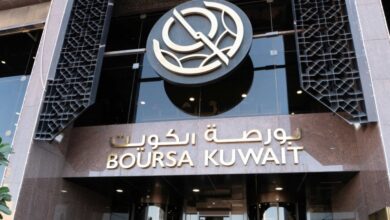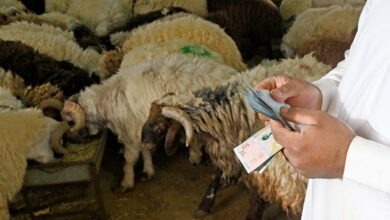Kuwait ensures safety checks for animals and feed
The Public Authority of Agriculture Affairs and Fish Resources are modernizing the examination equipment in its laboratory in the Amgra region, which will improve the quality of inspections with state-of-the-art devices.

• The Public Authority of Agriculture Affairs and Fish Resources has called on qualified companies to import laboratory testing devices to update them in line with technological advancements, especially since the currently operating devices are outdated.
The Public Authority of Agriculture Affairs and Fish Resources is enhancing its services to save time and effort for the public while ensuring food safety and achieving the country’s food security. As part of these efforts, the authority is modernizing the examination equipment in its laboratory in the Amgra region, which will improve the quality of inspections with state-of-the-art devices.
The Al-Rai newspaper toured the corridors of the laboratory department at the authority and met with its director, Ahmed Abdul Reza H, who stressed that “the authority is keen to develop its services for citizens, farmers, and livestock breeders by upgrading its laboratory equipment to process their transactions as quickly as possible and with accurate results for public safety.”
He pointed out that the authority has called on qualified companies to import laboratory testing devices to update them in line with technological advancements, especially since the currently operating devices are outdated.
The Audit Bureau addressed this issue in its annual report, emphasizing the need to renew the laboratory testing devices. Additionally, the Council of Ministers has requested the preparation of infrastructure for food security, including the testing of food, imported feed, and locally produced dairy.
Re-evaluation of laboratory devices
He added that “the authority held a workshop entitled ‘Re-evaluation of Laboratory Devices’ at the Veterinary Laboratory Center, with the presence of companies applying for participation. The aim was to assess the current situation in various veterinary and animal laboratories under the Department of Laboratories and Animal Research, in light of the outdated laboratory devices. This necessitated the workshop to re-evaluate these devices, ensuring their quality and proper function in a scientifically correct manner, to prevent any disruptions or failures that could hinder workflow in the future.”

He explained that “the Department of Laboratories and Animal Research employs about 40 Kuwaiti specialists, who make up 90 percent of the laboratory workforce. These laboratories are divided into animal, fisheries, and plant labs, as well as the experiments department.
The departments focus on examining, analyzing, and diagnosing diseases that threaten livestock, identifying their names and pathogens—whether bacterial, viral, or parasitic—that can lead to the deterioration of animal production and increased mortality. The department is also responsible for managing and ensuring the quality and safety of fresh milk and controlling imported feed.”
Labs for feed analysis and animal examinations at border ports
The commission is studying the opening of laboratories for feed analysis and animal examinations at border ports, to speed up testing and deliver results within hours, instead of transferring samples from the outlets to Amgra, which often takes 24 hours. This can be streamlined by conducting examinations at the ports. The laboratory department has received 3,900 samples in 2024, including local, import, and export samples.
He pointed out that “the administration needs specialists in chemical and biological engineering, food sciences, animal sciences, agricultural sciences, and laboratory technicians from Kuwait to keep pace with the expanding tasks and responsibilities entrusted to it, ensuring the safety of food and feed.”
He denied any interference in showing the results, stating, “The scrutiny is rigorous in this work. The door is open for those who challenge the results, where a grievance can be submitted and random samples are retaken, and rechecked to ensure their safety.” He stressed that “animals or feed cannot enter the country without ensuring their safety through examination.”
Most samples of examinations include, jet of all kinds, Al-Sabsa of all kinds, livestock feed, bird feed, fish feed, horse feed, powders of all kinds (meat, bone, feathers, and others) and feed additives.
Animal diseases in winter
The director of the laboratory department at the Public Authority for Agriculture and Fish Resources Affairs confirmed that most animal diseases appear in winter, as the high heat in summer reduces the chances of animal disease spread.
Animal and bird examination
He called on those who have an animal or bird and wish to have it examined to visit the Animal Health Department of the Authority in Farwaniya, where they can submit an examination request. The samples will then be sent to the laboratory department for analysis, and based on the examination results; the animal’s disease will be diagnosed.












